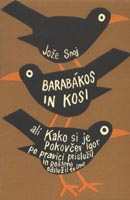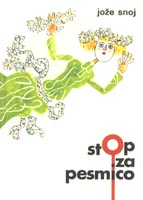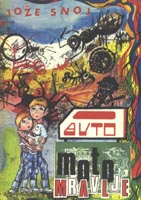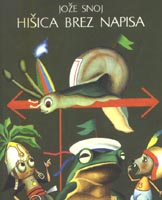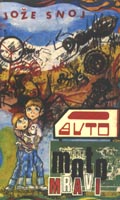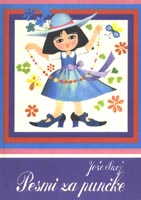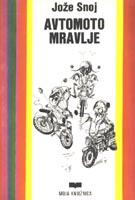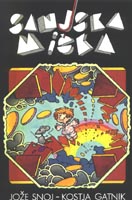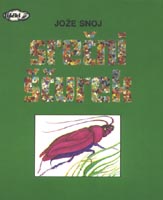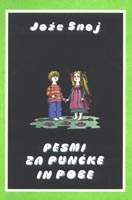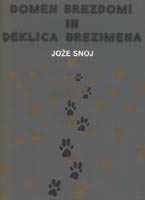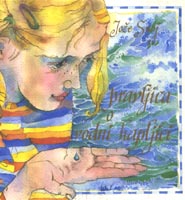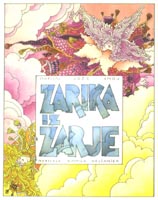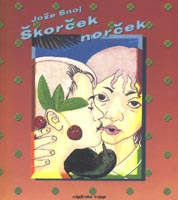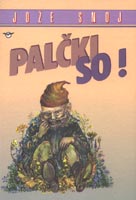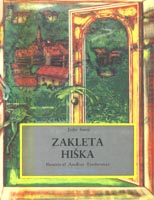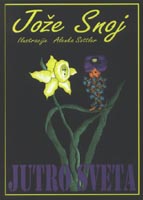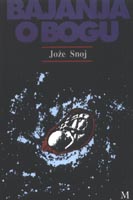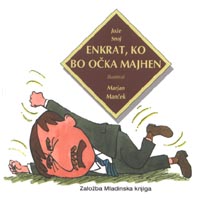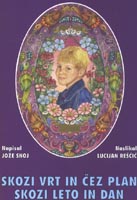


(Click on the picture to enlarge it)
|
|
Blackguard-blackbird
and Blackbirds The tale of the boy Blackguard-blackbird (everything in the blackbird's state has the ending "blackbird") and blackbirds is the author's first attempt in the field of literature for children. The adventures and misadventures of a blackbird's family are compared with a little human family nest, wrapped in a gentle humor. The blackbird's young one is in this transfer the author's first little son. Also for the future, his children remain the source of this kind of inspiration. In verse and prose, he accompanies their agitated everyday life, based on psychologically and ontologically meaningful symbols and on playfulness in motives and language. His writing for children demonstrates the same formal and substantial character as his literature for adults: which means the same poetics, but adapted for children's comprehension. The child-being becomes the constancy of his poetical experiences (as in epical Gallows Hill or lyrical Spiritual Poems). |
|
|
Hurdy-gurdy The little heroes of those poems are brothers Vid and Jost. The world of their first games, first investigations and experiences is their family. At home and beyond, in the world where walks and visits begin, enter father, mother, grandfathers and grandmother, all sorts of aunts and uncles and above all cousins and a female cousin. They have great fun playing and talking, specially "catching" words on jokes and rhymes, but also they become serious at moments. |
|
|
|
|
Stop for a Little Poem Vid and Jost now already know a lot. Their heads
are full of fairy-tales and other exciting story telling, adventures, cowboys
and cavaliers, swords and spears, Africa and Negroes, caravans and Arabs.
They already know all sorts of cars and their funny as well popular
nicknames; besides they would like to go to Trieste to buy toys and with
scouts to the seaside. In addition, out of such fantasies of two sons their
father is composing poems for them. He intermingles fun in these poems, or
uses serious everyday events, or he elicits the poems from such happenings. |
|
|
Auto Motor Ants Vid, Jost, and doggy Little Tail run across the meadow for such a long time that they are diminished to three little dots, able to step over to the land of ants. The ants' town Antown is a parable of a horrible state where the citizens, transformed to all sorts of motor vehicles, are nothing but numbers. The ants' authority is trying to "antize" and to destroy our travelers in a succession of tense and "science-fiction" like adventures. Nevertheless, the inventive boys do not allow themselves to be deprived of their free humanity and the adventure stops with a happy end - with a "magnifying" flight home on the backs of two bees. This book is a condemnation of totalitarianism, put into an Aesopian language and boyish imagination. As a parable, it is meant also for adults. |
|
|
|
|
Little House Without Inscription A rhythmic story, rich in sound of rhymes and
assonances about a snail that locked himself in his house and lost the key;
the ant-fireman assembles all the insects and other little animals living and
crawling in the wood's undergrowth to help their friend. |
|
|
Auto Motor Ants Translation into serbo-croatian language. |
|
|
|
|
Poems for Little Girls Vid and Jost get a sister Veronika and with
Noka (as she calls herself), the games in this home at once become completely
different. They are no more wildly boyish but become girlish. As soon as she
toddles, she creeps in mother's shoes; hardly having some hair, she would
like to wear braids and she hardly waits her father to take her - so
beautiful - to a dance. Nevertheless, most of all, from the very beginning,
she would like to become a mother. She is tending her celluloid doll so
rapturously that she nearly looks like Mary with child Jesus. Therefore, one
night the moon comes to her and from a little girl makes her a young girl.
The poems about her in this collection are less and less childish and more
and more girlish. |
|
|
Auto Motor Ants Reprint |
|
|
|
|
The Dream Mouse Jost catches a dream mouse in his nostril and
there they are - as he wishes - in Africa. In this dream in Africa - he has
done quite some naughty things lately - elephant, crocodile and lion haunt
him. When his father - Jost called him for help - lights up his pipe above
the dead lion, the boy sneezes and wakes up. And the nightmare fades away. |
|
|
The Happy Cockroach In the first stories of this prose
collection, we still find Vid and Jost, heroes of short trousers - for
instance - in the kingdom of black Tap-tap or of waterman Splash-splash. In
the following stories (on the remnants of this fairy tale naive, adjusted to
the very early boyish fantasy), the refined simplified symbolic emerges. On
this level, the narrative opens to the adult reader. The title story tells
about the cockroach, which "fed himself on" the beauty of
"Still-life with vine and bread" on the wall. When it is taken
away, the cockroach, longing for that painting, changes into a cricket. |
|
|
|
|
The Poems for Little Girls and Boys In this selection from three previous collections,
the author's observations and his verses about boyish and girlish natures
rounds up - in formal book shape - into a poetical experience of a child. |
|
|
Homer Homeless and Lass Nameless The subtitle (Fairy-tale love novel) reminds us, that we deal here with a narrative structure, which came into being in a special way: a "novel" about human beings seeking themselves in love overgrew the fairy-tale. Their search is endlessly wonderful but also all in vain, because love in them is caught in life's blindness (like a reflection of the alien light in the cat's eyes) and only death can fulfill such a love. The fairy-tale parallel to the broken family (in this hidden reality the author hopes in vain to meet his daughter, although she lives only "three streets away") is a story of fantastic occurrences, which happen to the homeless Homer, a story of unsuccessful searching for his nameless sister. The wonderful parallel world, to which he is going over with fantasy according to his "realistic" vagrant schedule, is throughout (as in an endlessly repeating game) giving him hope and taking it away. For an adult reader, this enigmatic phantasmagoria is in fact a novel about the eternal secret of being, but at the same time also a concrete grotesque of a fixed time at the expence of the absurdity of the Red regime. |
|
|
|
|
The Fairy-tale of Water Drop The hero of this story, which should
demonstrate the circulation of water vapors between sky and earth, is Water
drop. Everything would remain at this instructive explanation, if the author
did not interweave this Water drop with the girl's fantasies and with
history. On the way between a little summer house near Skofja Loka and the
sultan's palace at Bosporus, and on the way back, Water drop takes many sips
of poesy and tradition and (in the eyes of young man, fallen in love) drops
like a pearl, Water tear, on the girl's forehead. Water tear on its circular
way expires half on girl's and half on boy's lips. |
|
|
Aurora from Evening-red Zarja and Zarika as well as Zora and Zorica
or Zorika are Slovene female names: the first two mean sunset-light,
sunset-glows, evening-red and the second two mean dawn(ing), daybreak; aurora
in English can be both and can also be a name. Still the title is in fact
untranslatable. Sun and Moon (in Slovene, "luna" -
which uses the author - is feminine, the other word for the same English moon
is "mesec" and is masculine) have two daughters, Zarika and Zorica,
and two dwellings: the evening skyscraper Zarja and the morning little house
Zora. Each one alone, Sun and Moon fall asleep in the evening or morning in
one of the buildings and (thanks to the daughters, who are transporting
sleeping parents hither and thither in the firmament) wake up in the other.
However, once it happens that the weary girls let their parents oversleep
their job and they set out on playing at the sky all alone. Their shining
chaos would last and last unless Sun and Moon were awakened by the silver
scream of the little girl, who cannot endure a minute without her mummy. The
world of the author's children gets a new hero, Zarika. |
|
|
|
|
Baby Starling - Little Ninny Suburban reality: a lonely, weary boy Maj; a girl schoolfellow, who does not come to lessons any more saying that she has moved to Siska; embittered Angryman from hard war times, who guards the cherry tree against the starlings with a double-barreled gun. The fairy-tale like poesy of this reality, which is generally disguising death, follows like this: the horrible bang of the gun causes the feathers to spring up from the boy's body, while he was stealing fruit from the cherry tree. He turns into a starling. With the others of his kind, he flies in autumn to the miraculous beautiful Land over the sea, where the eternal girl, his former schoolfellow, is taking care of never born children, longing for parents. The old-time enamored couple marries and they become daddy and mummy of those kids. The beauty and the good are redemptive. |
|
|
Dwarfs Exist! Zarika has a big dog Ston (also a name of a
hill); her daddy and mummy have them both. However, not all the humans know
that this loutish, pleasing, and faithful Ston is not what he seems. They
would also never get to know that the Master of the mountain where they own a
little holiday cottage is mighty nature itself, if they did not meet a
mountain dwarf (Palček Stanovalček = Dwarf Dwell(ing), Sprite Reside), at the
same time a funny and serious wise man. The dwarfs are the connection between
people and nature - dwarfs really do exist! The story starts when the
cheerful dwarf comes in Zarika's holiday cottage to spend the winter, and it
continues when she takes him, hidden among her toys, unknowingly to
Ljubljana. In endlessly entertaining conversations with his hosts, sitting
there with his pipe in his mouth and with a small glass in front of him, he
crumbles them a lot of poetical and mysterious tales. |
|
|
|
|
The Haunted Little House In reality, there is only one plot left among the houses built on the moor; all the leftover singing frogs come to live in this puddle. However, even this puddle disapears, when Mighty man fills it up with earth and builds there a house. Nevertheless, he is haunted out of it (a fairy-tale curse!) as the frogs are emerging from the little corners and other rifts. The house would remain haunted and on the TV screen would still be showing a well-known "big frog" with double chin, unless Tincek (Marty), the young hero, turned the atrium back to a new plash. This fairy-tale story expresses the nostalgia of summer frog croaking and makes a point against the neighborhood of the officious authorities. Location: Murgle in Ljubljana. Time: the eighties. |
|
|
The Dawn of the World The Dawn of the World is full of very simple
and very mysterious questions about why and how everything that is really
exists. The stories of this collection lead both young and adult readers from
old to new mythical inventions and their ontological meanings. The simple
everyday in them turns to poetic eternal in the way of aithiological stories:
how and why, for example, became the trees, the wind, the clay jar, the
Istrian ox. An important question is
in what way the childish little God and the timeless Good Spirit, trying
painfully to arrange his world creation, had a hand in this creation. It is
the question too, how the Flower Dwarf tries to console the narcissist
narcissus, which is lamenting over the transitoriness of her life. This book deals with a sadly gentle
presence of human measures in the immenseness of being. |
|
|
|
|
Divining about God God is an extremely lonely creature, who does not see or hear himself. To see and hear himself would mean to start "existing"; therefore, he needs someone to think and feel him. As he himself is eternal and omnipresent this second "someone" can be anybody else but himself. To make himself a "space" for observing, he shrinks into himself for so long that as a Father he "explodes" into the form of his own Son, the first Adam. This first cosmic Adam, who finds himself in the emptiness of God, is the ancestor of the earthly Adam, the Son of Man, who in this emptiness has been anticipating and trying to find God ever since. A human being is therefore God's representative, who makes God possible to BE, to exist; and God is man's representative, who makes man possible to exist, to be. One without the other, who remain seeking and pining for ONE, cannot subsist. A man is, in short, the "existential" self-stratagem of God, a circumstance that both have problems with. This is a book of divinings, of joinings with several cosmogonies and myths, especially Gnostic, kabalistic and, of course, Christian; they speak about seriously comic cosmic and terrestrial events. In the undertone of the humorously mild and naive child's mind (here we deal with the typical "children's stories for adults") is the Christly existential emotion. The cunning Biblical snake is an extremely comically serious spiritus agens of the happening. |
|
|
Once the Daddy Will Become a Baby Selection of some of the author's juvenile poems. |
|
|
|
Through Garden and Across Plain, through Year and Day The
last of the author's family children gallery is Toncek (Tony). Through garden
and across plain, through seasons and the school year as well through the
years of growing up and of maturing Flower Dwarf accompanies him - altogether
in two "introducing" and twelve poems entitled after months. Hardly
toddling, Flower Toncek has already fallen in love. The Flower Dwarf moves
from the garden of Tony's fantasy to the groves of his heart, lost in dreams. |
|
Leonard's First Five in press |
|
|
|
Back |
